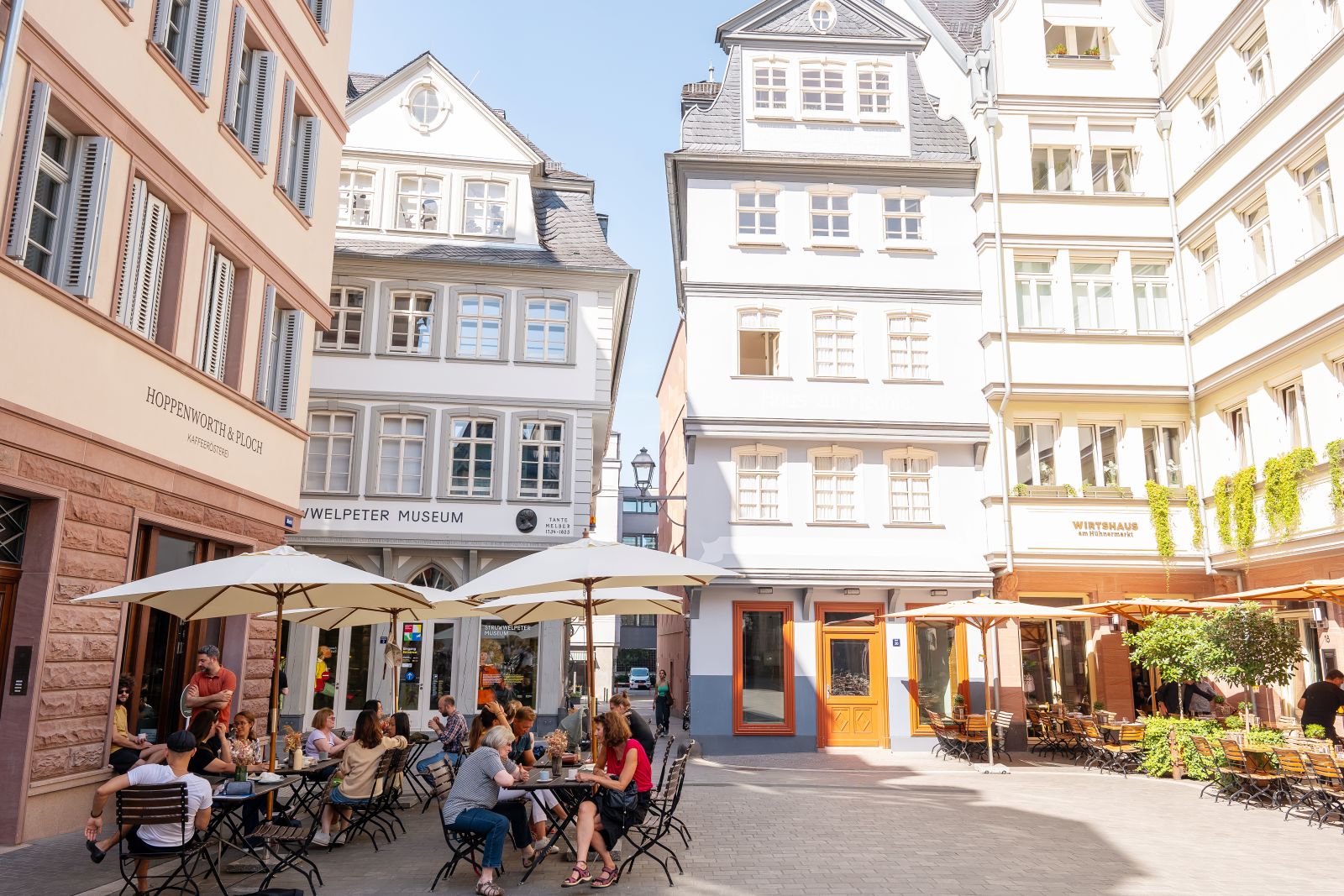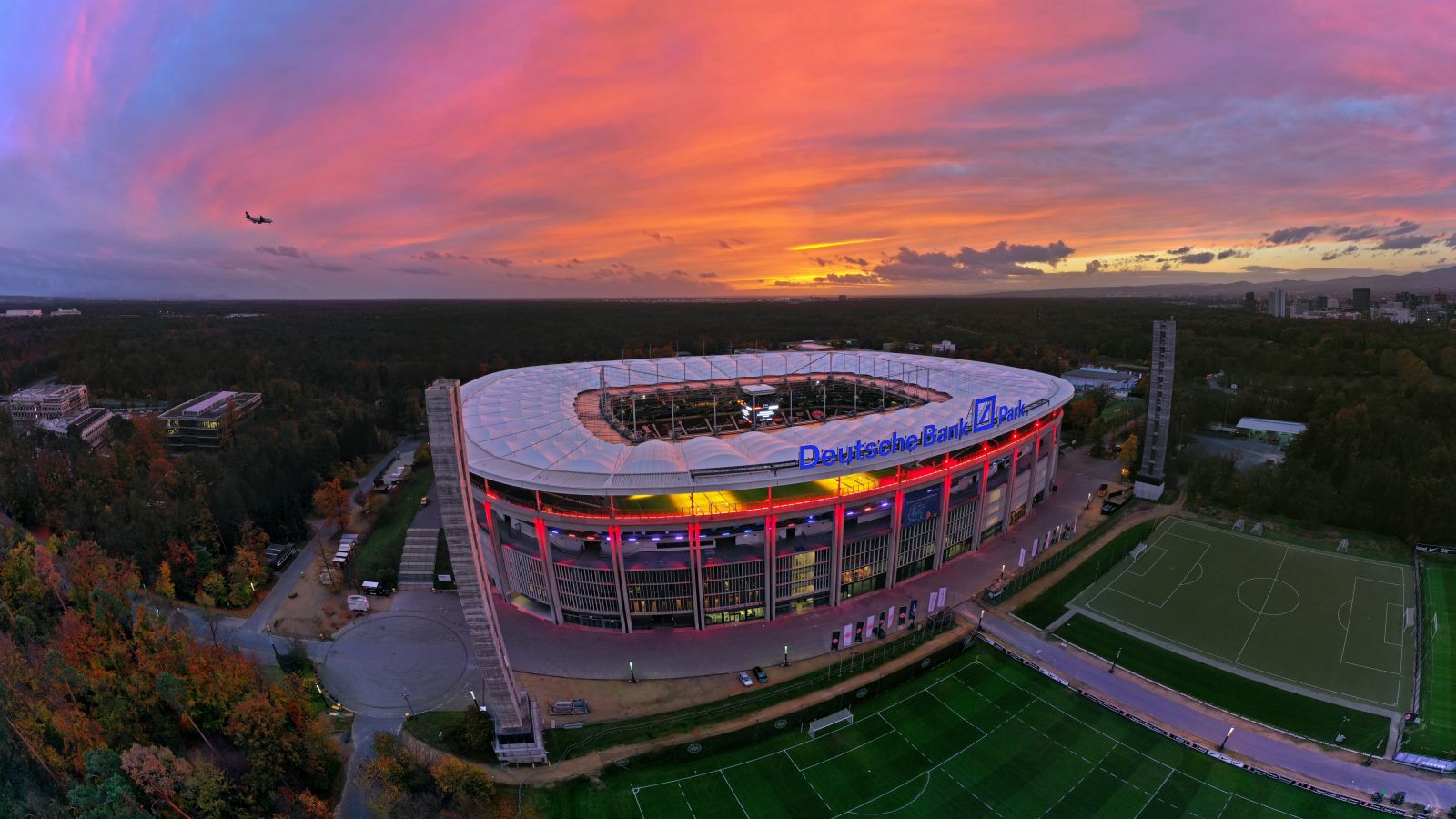Beyond Economics and Skyscrapers, Discover Frankfurt's Green Revolution

When the Frankfurt Convention Bureau (FCB) invited HQ on a pre-IMEX tour, our first reaction was one of surprise. What could they possibly show us that we didn’t already know after attending the show for so many years? When the itinerary arrived, it revealed a mission to show us a Frankfurt unknown to many, and of course, it sparked our curiosity.
Readers who think they know Frankfurt for its skyscrapers and financial institutions will be impressed by the city’s commitment to sustainability and its many green initiatives, making it a perfect fit for this July’s edition on sustainability.
Our tour of Frankfurt began at Margarete, a cosy restaurant in the New Old Town. Both the restaurant and the New Old Town exemplified Frankfurt’s blend of past and present, innovative and forward-thinking spirit, setting the tone for our weekend of discovery. The restaurant honours Margarete Schütte-Lihotzky, the architect behind the 1920s revolutionary Frankfurt kitchen design. The New Old Town, reconstructed from 2012 to 2018, recreated original buildings destroyed during the war with 35 new constructions, including 15 creative replicas. This meticulous blend of historic and contemporary design won the MIPIM award in March 2019, showcasing it as one of the world’s most sustainable and visionary developments. Both choices were a perfect introduction, highlighting how innovation has long been part of Frankfurt’s DNA.
Our walking tour of the New Old Town included a sustainable #cleanffm activity, part of an urban cleanliness campaign that encourages community participation in maintaining a steady, clean city. We joined the city’s clean-up efforts as we walked through the bustling streets of Frankfurt on a sunny Saturday afternoon. This hands-on activity gave us a first glimpse into the city’s many efforts to improve the lives of locals and visitors, as well as Frankfurt’s rich history. We actively participated in the green movement and highlighted the city’s commitment to community engagement and environmental responsibility.
Our exploration continued with a tour of the nhow Frankfurt, a design and lifestyle hotel in the booming European Quarter, next to the Messe Frankfurt. The hotel's money-themed design and 18 meeting rooms, named after currencies, reflect the city's financial spirit while also embracing sustainability. Among a long list of green features and initiatives, guests who skip the daily room cleaning to save water and chemicals are rewarded with a free drink at the NFT Skybar. Located on the 47th floor, the Skybar offers stunning 360-degree views of Frankfurt and is perfect for enjoying the sunset or hosting private events.
.jpg)
A second hotel visit took us to the classic New York-style NH Collection Frankfurt Spin Tower. Located within walking distance of the main train station and Messe Frankfurt, this hotel occupies 20 floors of Frankfurt’s newest skyscraper and boasts 11 flexible meeting rooms. Following our inspection, we were treated to dinner in the hotel’s restaurant, where a delicious meal and fine wine set the scene for more casual chats with the IMEX team before the busy days of the show.
A second packed day began at the Scandic Frankfurt Museumsufer Hotel, renowned for its barrier-free facilities and eco-friendly practices. The hotel’s accredited commitment to accessibility ensures comfort for guests with various disabilities, including wheelchair users and those with hearing and visual impairments. The hotel also boasts seven modern meeting rooms for up to 285 people, equipped with the latest conference technology. In terms of sustainability, the hotel uses organic and fair-trade food from local suppliers and minimises individual packaging. Its partnership with Too Good To Go helps minimise food waste by offering meals at reduced prices. Guests can borrow bicycles to explore the city in a sustainable way, which brings us to our next activity.
We took an eco-friendly ride on Velotaxi Frankfurt along the banks of the River Main, a perfect way to really appreciate how green Frankfurt is. Our next destination was a site inspection and a sustainably sourced lunch at Maindock Eventlocation, where we discovered the venue’s commitment to food waste management and supporting local initiatives. The in-house catering service aims to reduce catering waste by creating innovative menus from unused items. They work with organisations such as Caritas and Frankfurter Tafel to redistribute leftover food, ensuring it reaches those in need. Their efforts go beyond organising events, making a significant impact on the community and promoting sustainable practices.

Our tour included a visit to Deutsche Bank Park, home of Eintracht Frankfurt football club and one of the main venues for UEFA EURO 2024. The stadium, set in Frankfurt's city forest, will host five matches during the tournament. The location is fitting, as Frankfurt is also home to prominent sports associations such as the German Football Association, the German Olympic Sports Confederation and the International Triathlon Union, underlining its importance as a sports hub. This connection naturally led us to the Lindner Hotel Frankfurt Sportpark, a sports-themed hotel surrounded by the green expanse of the Frankfurt City Forest. Surrounded by sports-related organisations, the hotel is often used for their events. Its proximity to the stadium and various sports clubs makes it a top location for sports enthusiasts and professionals.
The Frankfurt Tourist+Congress Board, the parent company of the FCB, is closely involved in the organisation of EURO 2024 in June and July. They are overseeing complementary events, including the 1.4-kilometre-long Mainufer fan zone and additional events on the north bank of the River Main, which will host up to 30,000 people throughout the tournament. Frankfurt has embraced UEFA’s strict sustainability and inclusivity requirements, including the use of green energy, comprehensive waste management and inclusive projects. These efforts demonstrate Frankfurt’s expertise as a host city for major events, meeting and exceeding international standards for sustainability and inclusivity.
The final stop on our discovery weekend in Frankfurt was Kap Europa, part of Messe Frankfurt, which has set the benchmark for sustainable building practices, being the first convention centre to be awarded Platinum certification by the German Sustainable Building Council and recently awarded Eco-Management and Audit Scheme (EMAS) certification for its outstanding environmental management. EMAS is an EU initiative that helps organisations improve their environmental performance by providing a robust framework and tool for managing environmental issues. Messe Frankfurt, one of the world’s leading trade fair organisers, is committed to sustainability in all its venues, regardless of size, through its ongoing efforts to improve environmental performance, making Kap Europa a perfect example of how venues can operate sustainably.
Last but not least, Frankfurt is more than just skyscrapers and financial services or the host city of IMEX. The FCB leads by example in its commitment to sustainability, making a significant difference with green initiatives. At IMEX, its stand was carbon neutral for the first time, taking into account everything from construction to energy use, catering and exhibitor travel. The stand offered only vegetarian and vegan food, highlighting sustainable choices. Public transport passes were provided for exhibitors to minimise the carbon footprint. The icing on the cake was the effort to offset all emissions, a commitment to a greener future for Frankfurt and the meetings industry.







